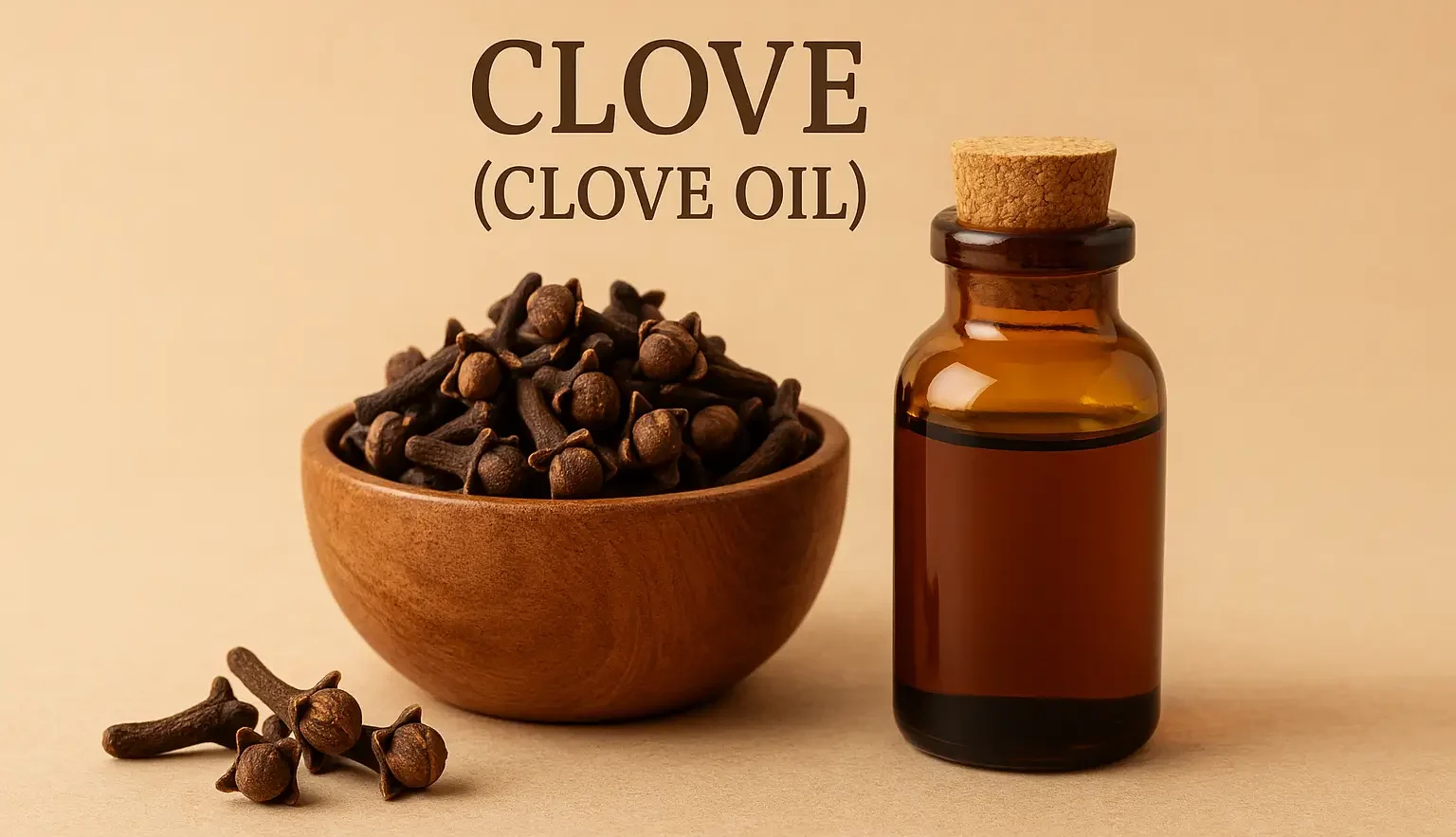General Introduction to Clove (Clove Oil):
- Clove oil is a volatile oil known for its powerful antiseptic, analgesic, and aromatic properties.
- It is primarily used in dentistry for toothache relief and in traditional medicine as an antimicrobial agent.

Synonyms of Clove:
- Common name: Clove
- Scientific name: Syzygium aromaticum (formerly Eugenia caryophyllus)
- Synonyms: Laung (Hindi)
Biological Source:
- Volatile oil is obtained from the dried flower buds of Syzygium aromaticum.
Advertisements
Family:
- Myrtaceae
Composition:
- Major constituents:
- Eugenol (70-90
- Eugenyl acetate
- β-Caryophyllene
- Minor constituents include vanillin and acetyl eugenol.
Chemistry & Chemical Classes:
- Chemical Class: Phenylpropanoids.
- Structure:
- Eugenol is a phenolic compound with an allyl group attached to the aromatic ring.
Advertisements
Therapeutic Uses:
- Analgesic: Provides relief in dental pain (toothache).
- Antiseptic: Used in oral infections and wound care.
- Antimicrobial: Effective against a broad range of microorganisms, including bacteria and fungi.
- Carminative: Used in flatulence and dyspepsia.
- Anti-inflammatory: Reduces swelling and irritation.
Commercial Applications of clove (clove Oil)
- Widely used in dentistry as an analgesic and disinfectant.
- Flavoring agent in mouthwashes, toothpaste, and food products.
- Used in perfumes and cosmetics for its strong, spicy aroma.
Click Here to Watch the Best Pharma Videos
Advertisements

